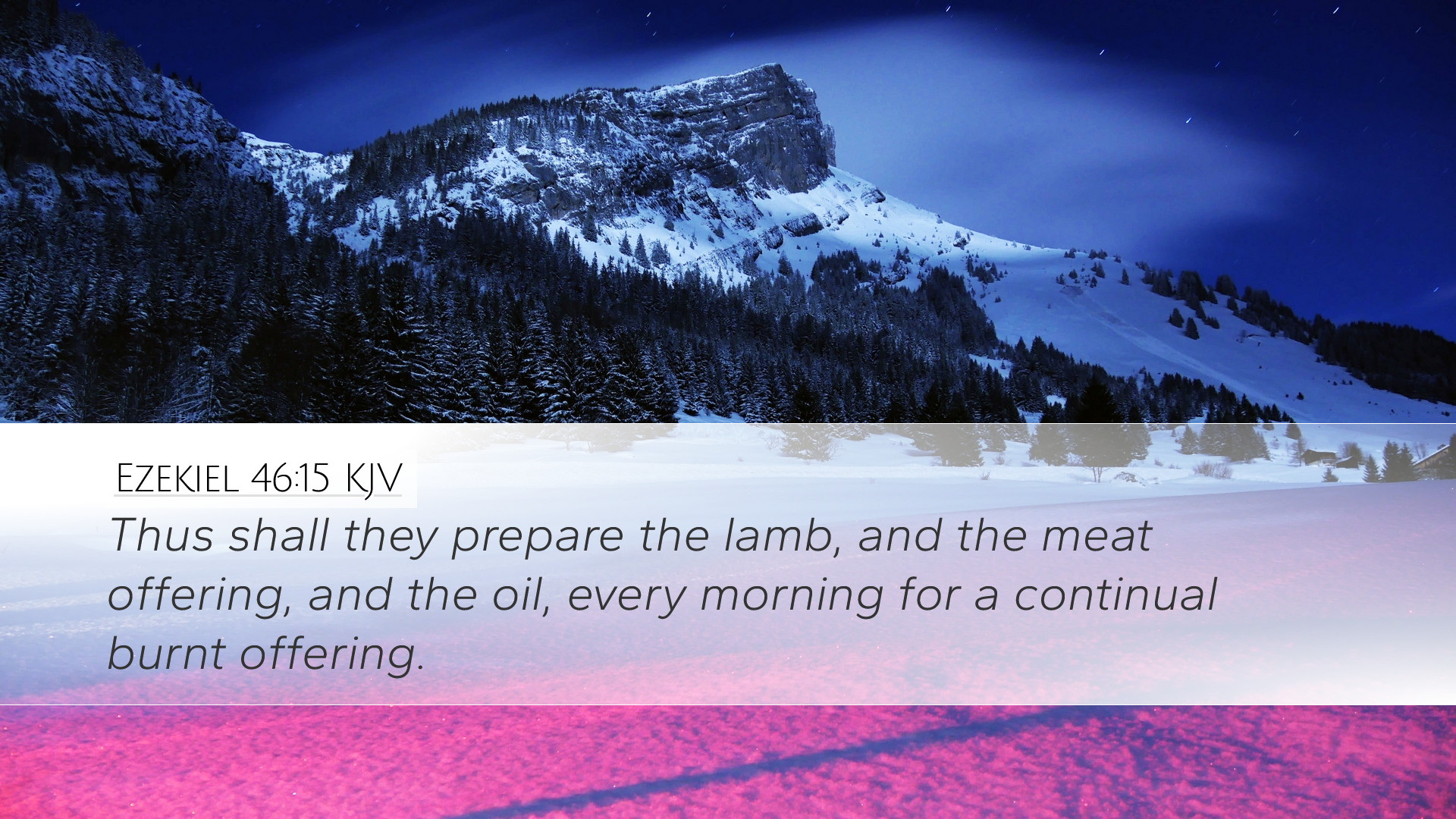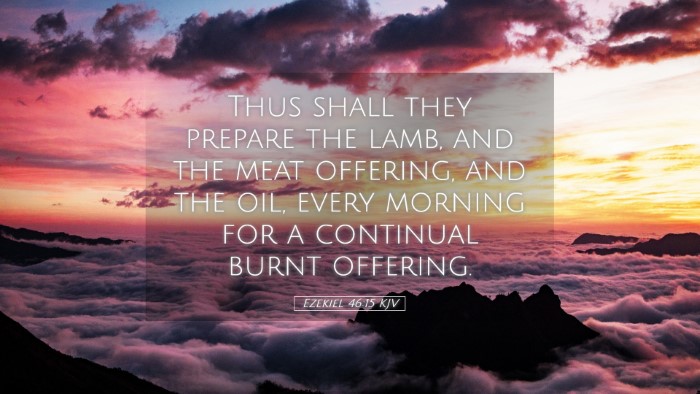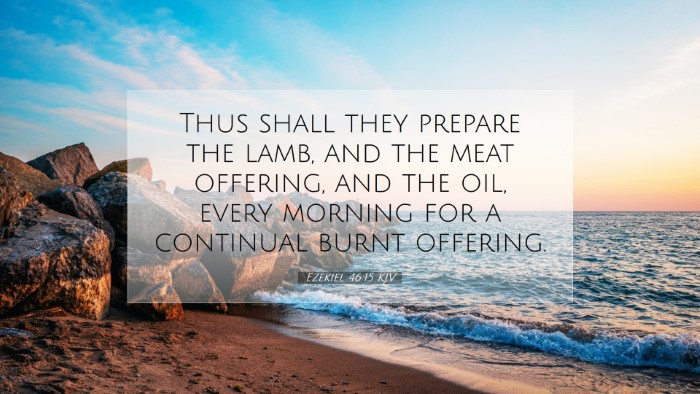Ezekiel 46:15 - Commentary Compilation
Bible Verse: Ezekiel 46:15
"Thus shall they prepare the lamb, and the meat offering, and the oil, every morning for a continual burnt offering."
Introduction
The verse under consideration, Ezekiel 46:15, addresses the rituals and offerings that are to be conducted as part of the worship in the millennial temple. This section of Ezekiel is significant as it reflects the prophetic vision concerning the restoration of Israel and the proper worship of YHWH. It serves as a template for the religious practices that were to be reinstated after the exile, highlighting the transition from asylum in Babylon back to the land of promise.
Theological Reflections
Commentators have explored the layers of meaning present in this verse. Here, we examine several key insights drawn from the writings of noted theologians and Biblical scholars.
Matthew Henry's Commentary
Matthew Henry provides a reflective analysis on the significance of the offerings presented in this passage. He notes that:
- The lamb symbolizes the sacrificial system instituted by God, pointing towards the final sacrifice of Christ.
- Each component of the offering—the lamb, the meat offering, and oil—plays a vital role. Henry emphasizes that this preparation reflects both devotion and obedience to God’s commandments.
- The phrase “every morning” signifies the constancy and dedication required in worship, illustrating the necessity for believers to maintain a continual attitude of worship and sacrifice.
Albert Barnes' Notes on the Bible
Albert Barnes expands on the functional aspects of the offerings. He notes that:
- The continual burnt offerings indicate the need for continual atonement and communion with God. Barnes highlights that this practice serves to maintain a relationship characterized by both reverence and accountability.
- There is an emphasis on communal worship; the offerings are intended not just for individual benefit but collectively for the community of Israel. This is paramount in understanding the role of worship in the corporate identity of God's people.
- The meticulousness in preparation reflects God’s order and holiness, suggesting that worship must be approached with a correct posture of heart and soul.
Adam Clarke's Commentary
Adam Clarke provides an in-depth exploration of the sacrificial themes present in this chapter, focusing particularly on:
- The implications of the ritualistic offerings as being not merely historical but also prophetic. Clarke posits that these offerings foreshadow the ultimate sacrifice of Jesus Christ, presenting Him as the Lamb of God.
- The daily offerings signify the need for constant preparedness in the life of devotion. Clarke stresses that the daily routine of worship transforms the believer’s relationship with God into a disciplined practice.
- He also points out the significant role that oil plays in offerings, representing the Holy Spirit's anointing and the illuminating guidance provided to the people of Israel.
Homiletic Applications
This verse presents various avenues for application in preaching and teaching:
- Daily Devotion: Just as the Israelites were called to prepare offerings every morning, believers today are also called to engage in daily devotion, bringing their lives in readiness to meet God.
- Community Worship: The corporate aspect of sacrifices encourages leaders to foster communities that actively engage in worship together, emphasizing the collective nature of faith.
- Significance of Sacrifice: The emphasis on sacrificial offerings serves as a challenge to modern believers to understand the depth of their commitment to God and the true cost of discipleship.
Conclusion
Ezekiel 46:15, while rooted in its specific historical and cultural context, offers timeless truths that resonate with believers across centuries. It compels us to reflect on the elements of sacrifice, community, and the necessity of ongoing devotion to God. The rich tapestry woven through the commentaries of Henry, Barnes, and Clarke provides a solid foundation for understanding and teaching this pivotal verse, encouraging a deeper appreciation for the sacred acts of worship that bind the community of faith.


